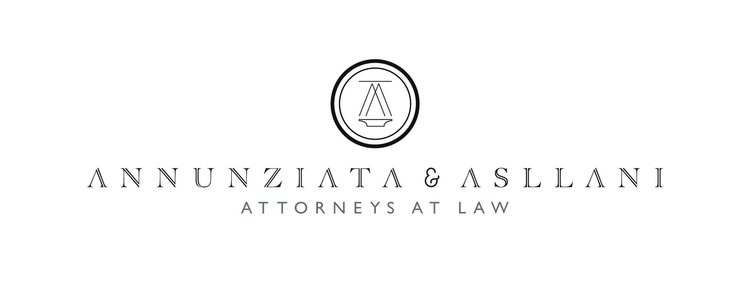- Call Us Today
- (646) 866 - 7878
- info@aandalegal.com
Wholesaling Part Two and other Considerations

Choosing the right real estate agent
November 8, 2018Due to an overwhelming response to our article on Wholesaling in New York we are doing this follow up article to address some common questions, issues, and misconceptions.
Wholesaling seminars and workshops are common throughout the country and have made their way into New York as well. As a result, many enthusiastic and ambitious entrepreneurs have begun contacting our office looking for guidance on making their first wholesale deal happen in New York.
Let’s start by setting the scene for a typical New York real estate transaction. First and foremost, New York is an attorney state. That means that the preparation of deeds, mortgages, assignments, satisfactions, leases or “any other instruments affecting real estate” are acts only permitted for admitted attorneys. This is codified in the New York Judiciary Law (N.Y. Jud. Law §§ 484). This means that unlike in other states (where attorneys may not be needed for a real estate transaction , you need a real estate lawyer in New York to represent you in a real estate transaction.
The process usually begins with an offer from the buyer to the seller. This offer is often typed up on a form (MLS FORM, other form, any writing that formalizes the basic terms of the offer). The terms such as purchase price, contract down payment, buyer’s and seller’s names and addresses along with their attorneys and real estate agents are placed in the offer sheet.
Once the offer is accepted, either it is directly forwarded to the Seller’s attorney or another (cleaner) version of the offer called the Deal Sheet is sent. The idea is to use the document to assist the Seller’s attorney in preparing the contract.
Typically, the Seller’s attorney is tasked with drafting the Contract of Sale and riders thereto and the Buyer’s attorney is tasked with reviewing the contract of sale, negotiating and making changes, and adding any riders or addenda for additional provisions that protect the client. Once the changes have been agreed to, the buyer signs first and submits a contract down payment (not to be confused with a downpayment required by a lender, the subject of which is a whole different article). Then the half-signed contract and dowpayment are transmitted by the buyer’s attorney to the seller’s attorney and the parties wait for the seller to sign the contract.
Once signed the contract is deemed fully executed and a copy of the fully executed contract is disseminated to both seller and buyer. From this point on parties are “in contract”.
Q: I’ve done thousands of wholesale transactions outside of New York, and have developed a form contract that I use to sign up clients. Why can’t I use this in New York?
A: Since NY is an attorney state, it would be the unauthorized practice of law for a non-attorney to draft “any instruments that affect real estate”. Furthermore, since the process described above is widely accepted by NY lawyers, a real estate transaction will need to be consummated in that fashion in order for all parties to be adequately protected.
Q: I use a title company (outside of New York) who handles all my wholesaling needs. They draft the contract, hold the escrow, do the requisite title work, and have the parties over to close the deal. Why can’t we just use a title company in New York?
A: The answer is similar to the above. Title companies do not handle real estate transactions from the contract perspective. They often do not have attorneys working for them. The principal role of title companies in New York is to prepare a title report for the purchaser’s attorney review and assist with title clearance (along with the Seller’s attorney – who is customarily and contractually in charge of clearing title), and ultimately to insure title for the purchasing party by issuing a title insurance policy. Annunziata & Asllani, LLP uses reputable and experienced title companies in order to effectively and efficiently close wholesale transactions.
Q: What is the Contract Downpayment? I thought the ultimate buyer puts up the downpayment? Do I as the wholesaler still have to put up a downpayment with the seller?
A: Generally, YES. The wholesaler is always the “B” party to the ABC transaction (where A is the seller and C is the ultimate buyer). Therefore, there are two contracts to think about: 1) the “A-B” contract between Seller and Wholesaler and, 2) the “B-C” assignment contract between the wholesaler and the ultimate buyer. Basic contract theory dictates that for a contract to be valid, there must be actual consideration. That is what is meant by the contract downpayment. In order for you to have a valid AB contract you must have some downpayment given to the Seller. This comes from you as the wholesaler. This contract deposit stays with the Seller’s attorney in escrow until closing. Next you obtain a downpayment from your ultimate buyer which stays with our firm in escrow until closing. Both those contract deposits become credits to the seller at closing and are adjusted for accordingly in the closing statement.
Side Note: We recommend that as a wholesaler you always seek to negotiate the smallest possible downpayment with your seller. The standard for contract downpayments in New York is 10% of the purchase price. Often times 5% is acceptable. If possible, seek to have your contract downpayment be 5% or lower. This reduces your wholesale risk in the event the deal doesn’t go through.
Side note to the side note: A word about contract privity. In essence once the A-B contract is fully executed you are bound by that contract. Your non-performance is an event of default where you stand to lose your contract downpayment as liquidated damages. Your assignment of contract is a separate contract between you and the ultimate buyer. The ultimate buyer (at least arguably) has no “privity” – that is enforceable contractual rights against the Seller in the A-B contract (without a novation). In the event the B-C transaction goes bust, the A-B transaction must still conclude. Therefore, follow the advice of the Side Note.
Q: Is wholesaling legal in New York?
A: This is a very common question. Wholesaling can take different definitions depending on who you ask. As far as our firm is concerned, we define wholesaling as the act of either 1) assigning a contract in which you (the wholesaler) are the contract vendee over to a ultimate purchaser for an assignment fee, or 2) purchasing a property and then selling it instantly to an ultimate purchaser for a higher price in a double closing. Neither of those two scenarios is per se illegal from a contractual perspective. The waters start getting murky when the wholesaler starts acting as a real estate broker/salesperson (a profession which requires licensing in New York). The other dangerous practice is the lack of transparency.
The Real Property Law section 440 defines broker as follows:
Whenever used in this article “real estate broker” means any person, firm, limited liability company or corporation, who, for another and for a fee, commission or other valuable consideration, lists for sale, sells, at auction or otherwise, exchanges, buys or rents, or offers or attempts to negotiate a sale, at auction or otherwise, exchange, purchase or rental of an estate or interest in real estate, or collects or offers or attempts to collect rent for the use of real estate, or negotiates or offers or attempts to negotiate, a loan secured or to be secured by a mortgage, other than a residential mortgage loan, as defined in §590 of the Banking Law, or other incumbrance upon or transfer of real estate, or is engaged in the business of a tenant relocator, or who, notwithstanding any other provision of law, performs any of the above stated functions with respect to the resale of condominium property originally sold pursuant to the provisions of the General Business Law governing real estate syndication offerings.
Just to reiterate – If you wish to sell your interest in the contract you have acquired, you can do so legally. Practice transparency in all aspects of the transaction:
- Let the seller know who you are and what you do (chances are they will find out anyway, when we ask for assignment clauses in their contract);
- Let the ultimate buyer know who you are and what you do (they will find out anyway, when they run title and see you are not the owner)
- Do not violate licensing laws. If you are not a licensed broker/salesperson in New York, don’t hold yourself out as one. Be extremely transparent in how you present yourself to your buyers. Remember to let them know you do NOT own the property, but simply a contractual right to buy the property. Remember, you don’t own the property, so you can’t go and place it on Zillow as “for sale by owner”. You cannot create listings and blast email them to your contact list. Be transparent and thorough in acquiring your ultimate buyer.
Q: What if I am licensed as a broker/salesperson? Can I still wholesale?
A: Sure. Transparency will keep you above water. You are required by law to disclose your license to any party that you conduct business with. Furthermore, you are required to disclose your license AND interest in the property (a contractual right to buy is an interest in the property) to all parties in the transaction.
Q: I have broker contacts who are offering me a fee for me to bring them buyers for their property that they are marketing. It’s a wholesale deal. Is this legal? Can I accept payment? Is this a finder’s fee?
A: First, ask yourself who you are to this transaction. Keep things simple. You are simply an outsider to the transaction with some contacts who might be interested in buying this property. So you are now going to ask those contacts if they wish to purchase property that you do not own or have any interest in. You are in effect arranging/negotiating the sale of real property. STOP HERE – do you have a broker/salesperson license? If NO then what you are doing is practicing without a proper license. If you want to be a broker, and get paid for your services, get your broker license. Also, keep in mind that Real Property Law section 442 specifically states that no broker can pay part of any fee he collects to an unlicensed person for help/aid in selling property. Section 442-e of the RPL sets out a nice list of consequences for violating the law including a misdemeanor charge triable in court.
Annunziata & Asllani, LLP, are experienced real estate attorneys who can help structure the transaction appropriately and legally so closing can be done smoothly. Contact us today for a free consultation.




